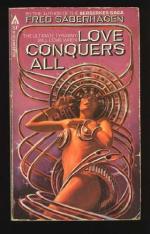It must be admitted that John William Rogers Jr., who collected the Stevenson material, warns the reader in his introduction that the book is not intended to serve as “a macadamized, mile-posted road to the secret of writing,” but simply as a help to those who want to write and who are interested to know how Stevenson did it. So we mustn’t compare it too closely with Miss Klickmann’s book, which is quite frankly a mile-posted road, with little sub-headings along the side of the page such as we used to have in Fiske’s Elementary American History. But Miss Klickmann will save the editors of the country a great deal more trouble than Stevenson’s advice ever will. She is the editor of an English magazine herself, and has suffered.
* * * * *
Where Miss Klickmann enumerates the pitfalls which the candidate must avoid and points out qualities which every good piece of writing should have, Stevenson writes a delightful essay on “The Profession of Letters” or “A Gossip on Romance.” These essays are very inspiring. They are too inspiring. They make the reader feel that he can go out and write like Stevenson. And then a lot of two-cent stamps are wasted and a lot more editors are cross when they get home at night.
On the other hand, the result of Miss Klickmann’s book is to make the reader who feels a writing spell coming on stop and give pause. He finds enumerated among the horrors of manuscript-reading several items which he was on the point of injecting into his own manuscript with considerable pride. He may decide that the old job in the shipping-room isn’t so bad after all, with its little envelope coming in regularly every week. As a former member of the local manuscript-readers’ union, I will give one of three rousing cheers for any good work that Miss Klickmann may do in this field. One writer kept very busy at work in the shipping-room every day is a victory for literature. I used to have a job in a shipping-room myself, so I know.
If, for instance, the subject under discussion were that of learning to skate, Miss Klickmann might advise as follows:
1. Don’t try to skate if your ankles are weak.
2. Get skates that fit you. A skate which can’t be put on when you get to the pond, or one which drags behind your foot by the strap, is worse than no skate at all.
3. If you are sure that you are ready, get on your feet and skate.
On the same subject, Scribners might bring to light something that Stevenson had written to a young friend about to take his first lesson in skating, reading as follows:
“To know the secret of skating is, indeed, I have always thought, the beginning of winter-long pleasance. It comes as sweet deliverance from the tedium of indoor isolation and brings exhilaration, now with a swift glide to the right, now with a deft swerve to the left, now with a deep breath of healthy air, now with a long exhalation of ozone, which the lungs, like greedy misers, have cast aside after draining it of its treasure. But it is not health that we love nor exhilaration that we seek, though we may think so; our design and our sufficient reward is to verify our own existence, say what you will.




